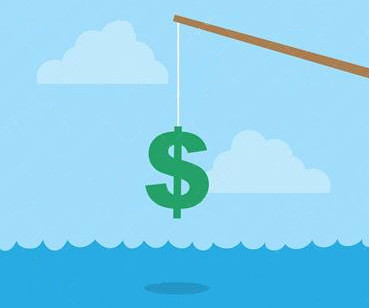There are four different ways to shop for home, car or other personal insurance in Ontario. You can shop directly with an insurance company, or with an agent that only works with one company, and that will get you exactly one quote. Or you can shop with a licensed insurance broker or online insurance comparison site, and that will likely get you dozens of quotes.
When you’re shopping for insurance, it’s not really like buying a refrigerator or a car. Because based on your location, your driving experience, the type of car you drive and a bunch of other factors, there are 50 or so companies that might want your business, they each have a price just for you, and there’s no one place to go to get all those prices.
Disclaimer: We think you should use a broker
Mitch is an insurance brokerage, and yes, we think using a broker is the best way to shop for insurance, because that’s the best way to get a bunch of accurate quotes that give you a good idea of what the market is like. Then if you buy through the broker, they become your ally if you ever have a problem with your insurance company. But why don’t we give you the pros and cons of each, and then you can decide for yourself.
1. Insurance brokers
Insurance brokers work with more than one insurance company (sometimes 4 or 5, sometimes 50+), to offer their customers lots of options in terms of coverage, price and service levels. They represent the customer, not the insurer, and can move customers from one insurer to another at renewal.
Examples of insurance brokerages:
- Mitch Insurance Brokers (Whitby)
- Northern Insurance Brokers (Sudbury)
- Caiger-Watson Insurance Brokers (Ottawa)
Pros:
- Choice and price – If there are 50 different companies out there with 50 different offerings and 50 different prices for someone like you, shopping with a broker will give you the best idea of what’s available. No broker works with every insurance company in Ontario, but a broker has the best chance of finding you the best price available for the coverage you need.
- Save time – If you don’t have time to call 50 insurance companies one-by-one, answer each of their questions, and go through each of their offerings, talking to a broker is the best way to quickly maximize your chances of getting the best deal.
- Service and claims – Insurance brokers typically provide much more personalized service than if you buy directly from an insurance company. Depending on the size of the brokerage, you may get to speak to the same agent every time you call, but not necessarily. If you have a problem with a claim or a dispute with your insurance company, the broker will be on your side.
Cons:
- Choice? – Not all brokers have contracts with a whole bunch of insurance companies. When you call a broker, you should ask them not only how many insurers they work with, but also how many in the particular line of insurance you’re looking for (home, condo, auto, event etc.) Mitch works with more than 50 insurance companies, and can get you more than a dozen quotes for most standard types of insurance.
- Inaccurate quotes? – You’ll get accurate quotes if you call. A broker has to ask you questions to satisfy dozens of different insurance companies. If the brokerage offers online quotes, it’s very unlikely you’ll get accurate quotes this way with the current technology.
2. Insurance agents
Insurance Agents work with only one insurance company. They are basically a reseller of that company’s insurance products, and no others.
Examples of insurance companies that sell through agents:
An insurance agent would usually just be identified by their name and the company they represent. Insurance companies that sell through agents include:
- Allstate
- Desjardins
- Co-operators
Pros:
- Service – Agents usually provide more personalized service than if you buy directly from an insurance company. Depending on the size of the agency, you may get to speak to the same agent every time you call, but not necessarily.
- Accurate quotes? – Because you only get a quote from one insurance company, the agent should be able to ask the right questions for an accurate quote. But sometimes agents try to save money by not ordering your drivers abstract and insurance history until after you buy. If those documents don’t reflect exactly what you told them, they can change the price weeks later or even cancel you.
- Good price? – If the agent represents an insurance company that happens to be looking for customers like you (say female drivers over 25 with a clean record, or older homeowners with homes under 20 years old), you might get a good price.
Cons:
- Bad price? – If the insurance company the agent represents doesn’t want your business due to your age, location or driving experience, you might get a quote that is two or three times more than the best price that’s out there.
- No choice – You will give your information to the agent, and they will give you maybe a few product options, and a price. They won’t be able to tell you how that price compares to other companies, they won’t be able to recommend companies with coverage options that suit you better, and if the price goes way up next year, they won’t be able to switch you to a company with a better price.
- No ally – If you have a claim or other issue, the agent may help you find the right people to talk to, but the agent is not likely to go to bat for you if you have a disagreement with their employer, the insurance company.
3. Direct writers
Direct Writers are insurance companies that sell their own insurance products, and only their own insurance products, usually either online or over the phone.
Examples of direct writers:
- Sonnet
- TD Insurance
- BelairDirect
Pros:
- Good price? – If the insurance company you stumble upon happens to be looking for customers like you, you’ll probably get a good price.
- Accurate quotes – Direct writers can usually ask the exact right questions (whether online or on the phone) for an accurate quote.
- DIY online – Direct writers are usually able to deliver a quick and convenient insurance shopping experience online, if you know exactly what you want and understand all the questions. If you need help though, good luck.
Cons:
- Bad price? – If the insurance company doesn’t want your business, your quote could be two or three times more than other insurance companies would offer.
- No choice – A direct writer can’t present you with alternatives on price, product options or service levels. They present one thing and you take it or leave it.
- Don’t call us – Direct writers are focused on delivering a quick and convenient online sales experience and selling a lot of policies to a particular kind of customer. Their phone sales and service experience can be slow and cumbersome. You’ll talk to someone different every time you call.
- No ally – If you ever have a problem or a claim, the company will act in its own best interest, not yours. If you have a beef, you’ll be fighting on your own.
4. Insurance comparison sites (aggregators)
Insurance comparison websites don’t actually sell insurance. They are essentially an interactive advertisement for insurance, like a commercial. Showing you something attractive (low prices) to get you on the phone with a salesperson. They take your information, use it to generate quotes, then essentially sell you (as a potential customer or “lead”) to an insurance company, agency or brokerage. If you shop this way, you’ll also end up using one of the other methods above.
Examples of insurance comparison sites:
- LowestRates
- RateHub
- InsuranceHotline
Pros:
- Seems easy – These sites ask you as few questions as possible before giving you quotes.
- The appearance of choice – After filling in your information on an online form, the site will usually show you at least 5 or 6 different quotes. But the quotes you’ll see are based on who is paying them for your “lead”, so you won’t necessarily see the lowest prices, and the quotes probably won’t be accurate anyway.
- Anonymous browsing? – Sometimes you just want to get an idea of how much something costs, and you don’t want to make chit-chat with anybody. At first, you’ll get exactly what you want. Lots of quotes, no chatter. However, assuming you enter your actual contact information, you will almost always get a call or email from a salesperson afterwards, whether you ask for one or not.
Cons:
- Inaccurate quotes – Since these sites don’t ask enough detailed questions, it’s virtually guaranteed the quotes you’re shown will not be close to the actual price you end up paying. Plus if the company with the best rate isn’t buying leads at the time you go online, you won’t see their price.
- Added cost – Insurance companies, agents and brokers use insurance comparison websites as a source of potential customers (leads). If you end up buying insurance from someone you found through one of these sites, they paid for the lead.
- No service – Once the website “sells” you to an insurance provider, you aren’t their customer. You can’t call them to make changes to your policy or if you have a claim. It’s like trying to call a billboard to complain about the great mattress it was advertising. It’s a billboard. Operators are not standing by.
Online competitive quotes are not accurate

The moral of the story
Ultimately, we all need insurance. How you get it is up to you. What you get with a licensed insurance broker like the team at Mitch that you don’t get with any of the other options is an insurance broker, who can give you options, is on your side, and won’t disappear the second you sign the paperwork. If we’ve convinced you, we’ll be expecting your call. If not, best of luck with your insurance shopping!

We’ll shop the best insurance companies in Ontario for you.
Speak with a Mitch Insurance broker today to get a quote on insurance in Ontario.
Call now
1(403)8000267







